What does an AI Research Scientist do?
What Does an AI Research Scientist Do?
An AI Research Scientist specializes in designing, developing, and optimizing algorithms and models that enable machines to learn independently, reason, and make decisions. This role operates at the intersection of scientific research and technological innovation and is crucial for advancing the next generation of artificial intelligence.
Responsibilities and Tasks
AI Research Scientists are engaged in both fundamental and applied research in areas such as machine learning, deep learning, neural networks, and natural language processing. They build prototypes, conduct experiments, and often publish their findings in scientific journals or present them at conferences. In addition, they collaborate with software engineers and data scientists to translate research results into practical applications, such as intelligent systems, chatbots, image recognition technology, or autonomous vehicles.
Technological Expertise
These professionals are typically skilled in programming languages such as Python, C++, or Java, and use AI frameworks like TensorFlow, PyTorch, and scikit-learn. They have a deep understanding of mathematical concepts such as statistics, linear algebra, and optimization techniques, which are essential for training and improving models.
Where Do AI Research Scientists Work?
AI Research Scientists work in a wide range of sectors, including technology companies, research institutions, universities, healthcare, automotive, and the financial industry. Large companies are increasingly investing in internal AI labs to foster innovation and gain a competitive edge.
Impact on the Future
The impact of AI Research Scientists is growing rapidly. They contribute not only to technological progress but also to societal change. By developing reliable, fair, and transparent AI systems, they help shape a future in which machines support and enhance human decision-making.
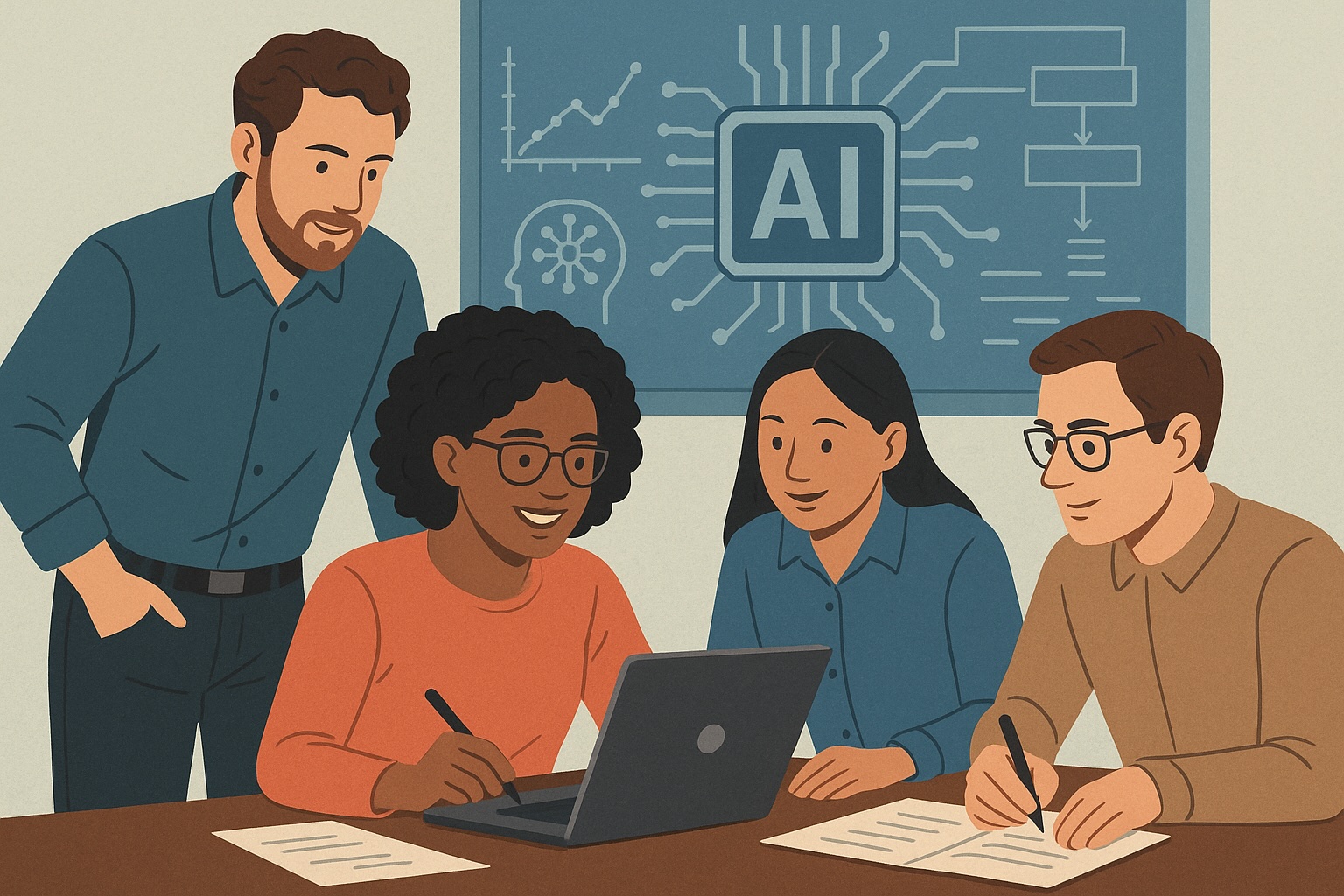
A day in the life of an AI Research Scientist
A Day in the Life of an AI Research Scientist
08:30 – Quiet start with coffee and literature
The day usually starts quietly. With a cup of coffee, the AI Research Scientist reads the latest publications on arXiv or Google Scholar. Staying up to date with developments in machine learning, neural networks, or reinforcement learning is essential to continue doing cutting-edge work. Articles are annotated, and interesting ideas are noted for future experiments.
09:30 – Team stand-up and project meeting
During a short daily stand-up, ongoing experiments, challenges, and priorities are discussed with fellow researchers, data scientists, and engineers. The atmosphere is usually collegial and intellectually sharp. Everyone briefly shares their progress, after which concrete agreements are made for the rest of the day.
10:00 – Designing and coding experiments
The AI Research Scientist then gets to work designing new experiments. This can range from developing a transformer architecture for language models to testing new optimization techniques. The focus is on writing efficient, reproducible code—often in Python using frameworks like TensorFlow or PyTorch.
12:30 – Lunch and informal knowledge exchange
Lunch often offers room for informal conversations with colleagues. Occasionally, short ‘lunch & learn’ sessions are organized, where colleagues explain recent papers or research projects. This encourages cross-pollination between different teams and disciplines.
13:30 – Analyzing experimental results
The afternoon begins with analyzing results from previously conducted experiments. Visualizations are generated, error margins examined, and performance indicators evaluated. It’s not just about numbers, but also about understanding the ‘why’ behind the outcome. Interpretation and critical thinking are key.
15:00 – Brainstorm session or writing papers
On some afternoons, new research ideas are brainstormed or work is done on writing a scientific paper. This requires precision, creativity, and a strong overview of existing research. Together with co-authors, findings are structured, charts are added, and hypotheses are clearly formulated.
16:30 – Presentation or knowledge sharing
The day often ends with an internal presentation or knowledge-sharing session. The AI Research Scientist may present experimental results to stakeholders or colleagues from other departments. Strong communication skills are essential to convey complex models and insights to a broader audience.
17:30 – Reflection and planning
Finally, the day concludes with a short reflection: what went well, where are the next opportunities? Notes are taken and code is neatly saved for reuse. Then it’s time to wind down—though new ideas often continue to simmer during the walk home.
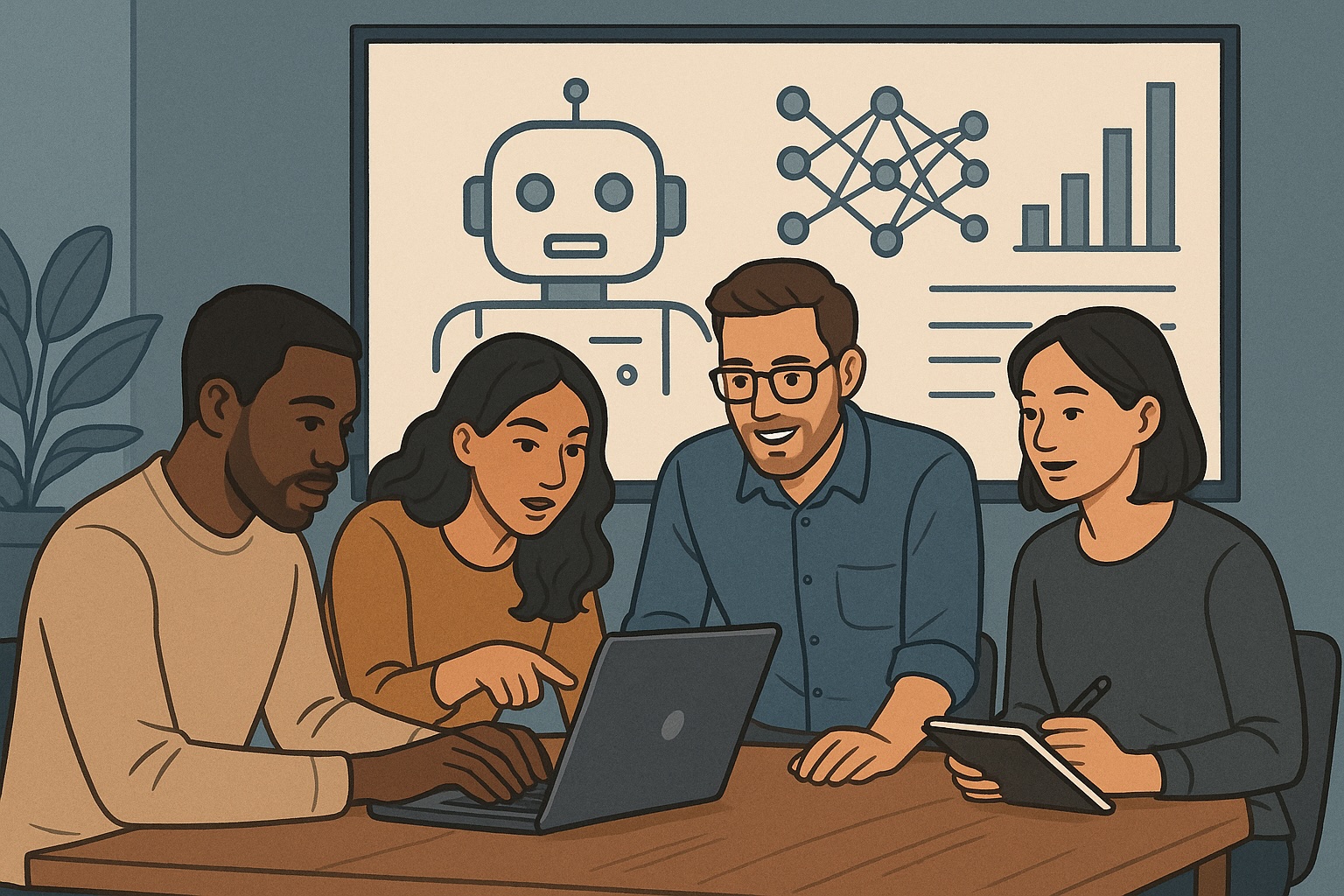
What tools does an AI Research Scientist use?
Advanced Machine Learning Frameworks
AI Research Scientists make extensive use of powerful machine learning frameworks such as TensorFlow and PyTorch. TensorFlow, known for its scalability and support for production environments, is widely used in large-scale deep learning projects. PyTorch, favored for its intuitive approach and dynamic computational graphs, is particularly suitable for experimental research and rapid iterations. These frameworks form the foundation for developing, training, and validating neural networks, natural language processing (NLP) models, and advanced computer vision solutions.
Data Analysis and Preprocessing Tools
To prepare and analyze datasets, AI researchers use tools such as Pandas, NumPy, and Scikit-learn. These libraries assist in cleaning, transforming, and modeling data. Languages such as Python and R are frequently used due to their extensive ecosystem of scientific libraries. Additionally, interactive environments like Jupyter Notebooks are essential for combining code, visualizations, and explanations into one clear workflow document.
Cloud computing plays a key role in this. Platforms like AWS, Google Cloud, and Microsoft Azure enable researchers to train models on powerful GPU and TPU servers without relying on local hardware. This accelerates research and enables large-scale experimentation.
Visualization and Communication Tools
Data visualization is crucial for clearly conveying insights. AI Research Scientists use tools such as Matplotlib, Seaborn, Plotly, and D3.js to graphically display trends and patterns. For dashboards or reports, tools such as Tableau or Power BI are also used, enabling teams and stakeholders to better interpret the results.
Moreover, presentations and documentation play an important role in collaboration. Tools such as LaTeX (for academic papers), Overleaf (for document collaboration), and GitHub (for version control) are often integrated into their daily workflow.
Emerging Technologies and AI-Specific Tools
Technological developments are moving rapidly. AI Research Scientists continuously experiment with new tools, such as Hugging Face for NLP models, LangChain for AI agents, and advanced simulation environments like OpenAI Gym for reinforcement learning. Experiments with edge computing and federated learning are also becoming increasingly important in applications where privacy, computing power, and real-time processing are central.
In essence, an AI Research Scientist combines deep theoretical knowledge with practical technical skills and a broad arsenal of tools, allowing them to continuously push the boundaries of artificial intelligence.
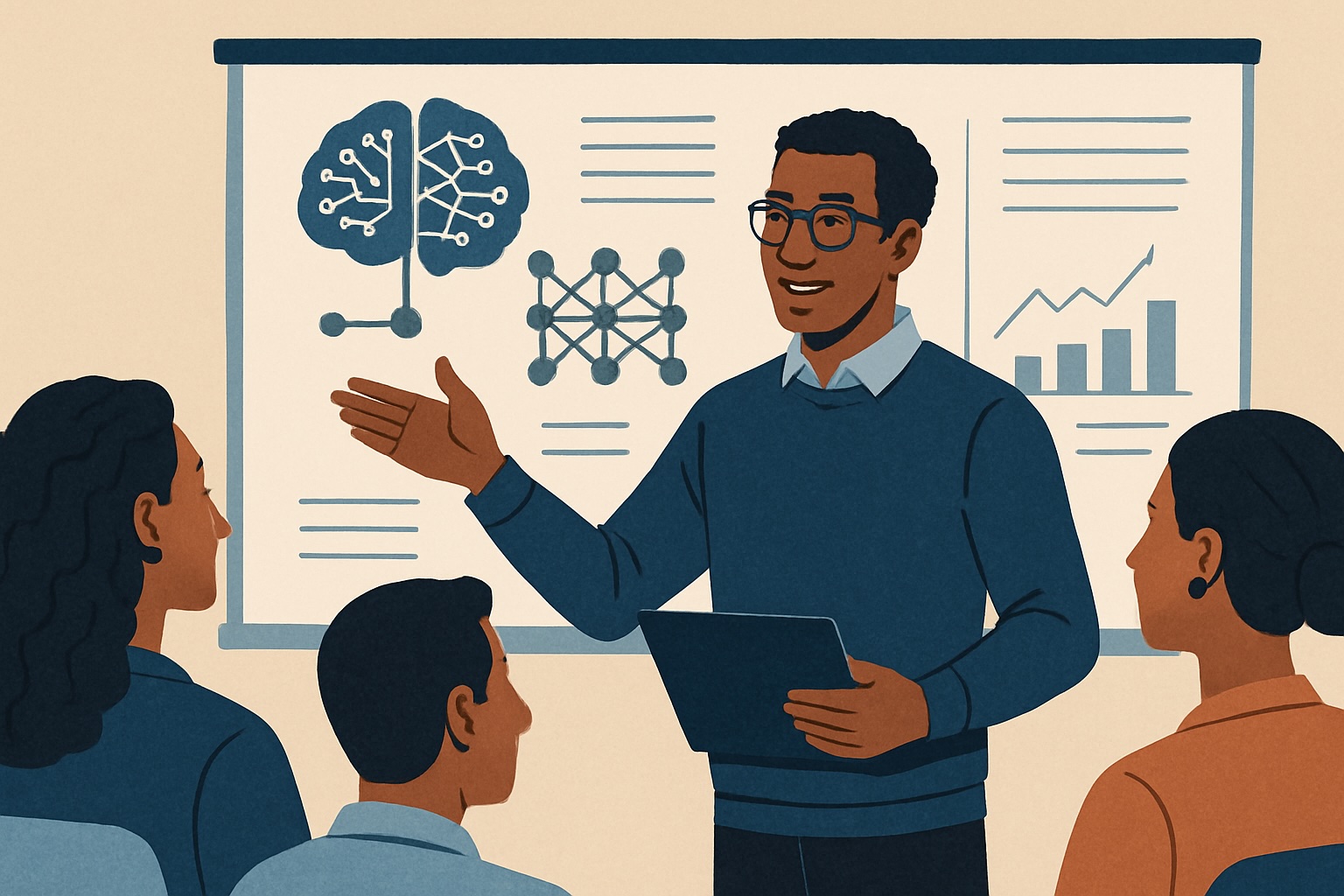
What is the salary of an AI Research Scientist?
The salary of an AI Research Scientist can vary significantly depending on factors such as education level, experience, sector, location, and the type of organization (e.g., tech companies, research institutions, or universities). AI Research Scientists operate at the intersection of science and technological innovation and are essential for developing new algorithms and AI solutions. Below is an overview of salary expectations based on different levels of experience.
Entry Level (Junior AI Research Scientist)
A Junior AI Research Scientist, for example with a recently completed master’s degree in Artificial Intelligence, Computer Science, or Machine Learning, typically earns €3,000 to €4,000 per month. At this level, you often work under supervision on experimental models and data analysis projects, supporting senior researchers in developing prototypes and publishing findings.
Mid-level (AI Research Scientist)
An AI Research Scientist with several years of experience (usually between 3 and 6 years) earns on average between €4,000 and €5,500 per month. Professionals at this level independently design models, publish scientific papers, and actively contribute to research strategies. Experience with frameworks such as TensorFlow, PyTorch, and knowledge of neural networks, NLP, or reinforcement learning is typically required.
Senior Level (Senior AI Research Scientist)
A Senior AI Research Scientist with more than 6 years of experience can expect a salary between €5,500 and €7,000 per month. These experts lead research projects, mentor junior colleagues, and are responsible for designing innovative AI solutions with direct impact on products or policy. They regularly publish in top-tier journals and speak at international conferences.
Principal AI Scientist / Head of AI Research
A Principal AI Scientist or Head of AI Research fulfills a strategic role and often earns between €7,000 and €9,000+ per month. These roles are mostly found in large tech companies, research institutes, and AI labs. In addition to technical expertise, leadership in setting the AI vision and shaping long-term research agendas is expected at this level.
Location and Sector
The sector and location greatly influence salary. In regions like Amsterdam, Eindhoven, and Delft, salaries are often higher due to the presence of universities, high-tech companies, and international R&D centers. In the private sector—such as big tech, fintech, or healthcare—compensation is generally higher than in academia.
Education and Skills
This role typically requires a master’s or PhD in Artificial Intelligence, Computer Science, Data Science, or a related field. Experience with programming languages such as Python and C++, knowledge of AI theory, and the ability to publish scientific work are important factors. Additionally, skills like creative thinking, analytical ability, and scientific curiosity are essential for success.
| Position Level | Experience | Monthly Salary (gross) |
|---|---|---|
| Junior AI Research Scientist | 0–2 years | €3,000 – €4,000 |
| AI Research Scientist (mid-level) | 3–6 years | €4,000 – €5,500 |
| Senior AI Research Scientist | 6+ years | €5,500 – €7,000 |
| Principal AI Scientist / Head of AI Research | Strategic / Leadership | €7,000 – €9,000+ |

Career path and growth opportunities
Career Path and Growth Opportunities for AI Research Scientists
The role of an AI Research Scientist is not only intellectually challenging but also offers ample opportunities for professional growth. Depending on experience, expertise, and ambitions, AI specialists can develop their careers in various directions.
From Researcher to Leader
Many AI Research Scientists start as individual researchers or team members within larger AI projects. As they gain more experience, they can advance to leadership roles such as Lead AI Scientist, Principal Investigator, or Head of an R&D Team. In these positions, they mentor other researchers, set research directions, and represent their department within the organization.
Executive Roles and Entrepreneurship
For those looking beyond pure research, there are also opportunities to grow into strategic and executive roles. Consider positions like Chief Technology Officer (CTO), Head of AI, or even co-founder of an AI startup. In these roles, you're responsible for shaping an organization's AI strategy and translating research insights into products and services.
Specialization in Niches
AI is a broad field with countless specializations. Many AI Research Scientists choose to further deepen their expertise in a specific niche, such as neural networks, deep learning, robotics, or natural language processing (NLP). These specializations often require additional training or doctoral research but also open doors to unique projects in both academia and industry.
Research and Academic Career
AI Research Scientists with a passion for fundamental research may choose to pursue an academic career. This can include earning a PhD, publishing scientific articles, and teaching at universities. In this setting, they play a vital role in advancing the AI knowledge of the future.
Interdisciplinary Opportunities
Due to the increasing impact of AI across various domains, more interdisciplinary roles are emerging. AI Research Scientists can work in healthcare, logistics, the legal sector, or the creative industry. In these roles, they combine their technical expertise with domain knowledge to develop innovative solutions for societal challenges.
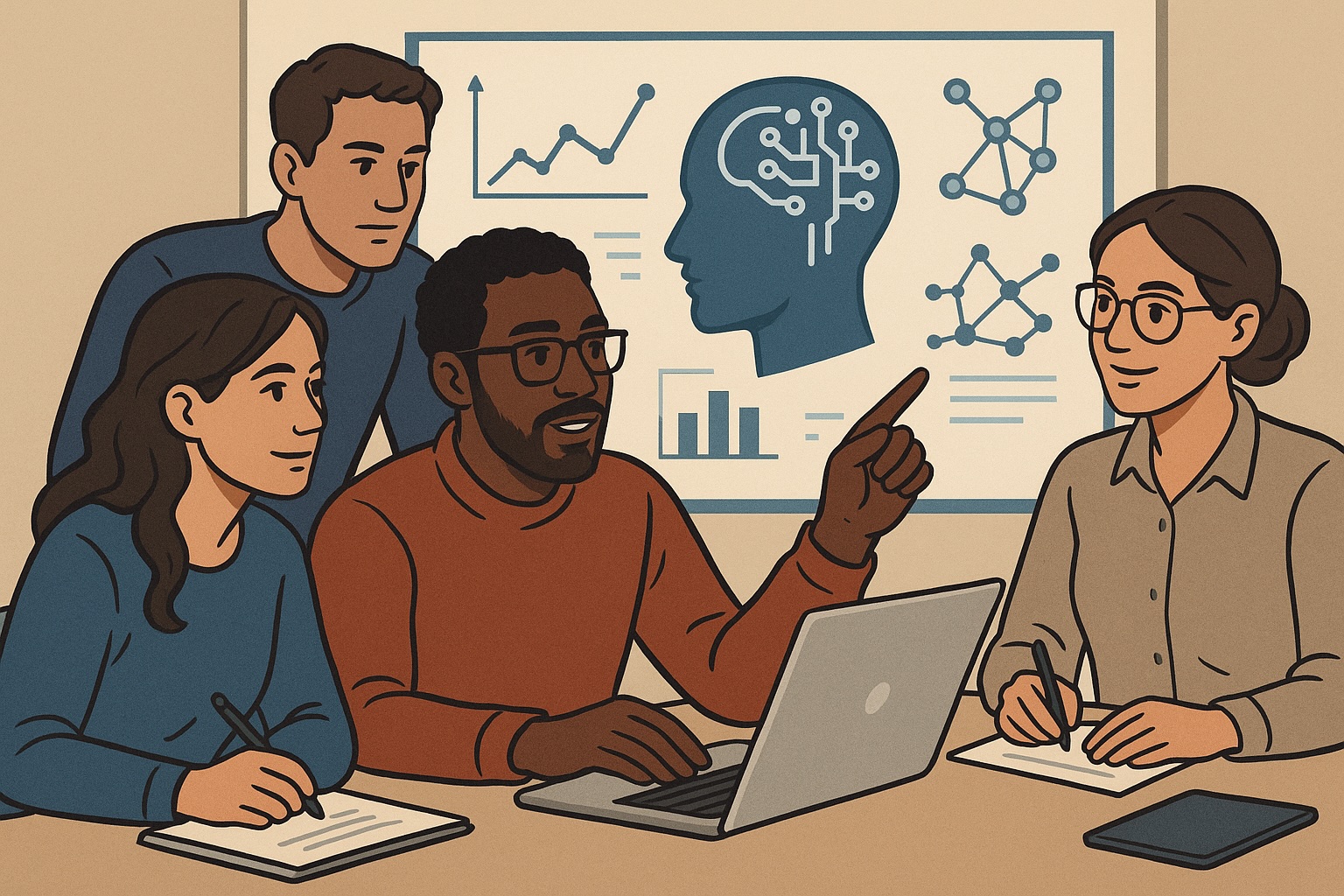
Training and Certification
Most AI Research Scientists have a solid academic foundation, often at the master's or doctoral level. Typical fields of study include computer science, artificial intelligence, machine learning, statistics, data science, or applied mathematics. These programs provide both the theoretical foundations and practical skills essential for designing, training, and evaluating advanced AI models. Universities such as the Massachusetts Institute of Technology (MIT), Stanford University, the University of Cambridge, and institutions in the Netherlands like TU Delft, the University of Amsterdam, and Radboud University offer high-quality AI-related programs.
Advanced Specializations and PhD Trajectories
For those who want to dive deeper into research and theoretical innovation, a PhD track is often a logical next step. During a doctorate, one works on groundbreaking research in areas such as deep learning, reinforcement learning, natural language processing, or explainable AI. This not only results in valuable publications in scientific journals but also strengthens analytical thinking, research skills, and international visibility as an AI expert.
Specialized Certifications
In addition to academic degrees, specialized certifications are a valuable complement. These demonstrate that a professional has up-to-date knowledge of specific frameworks, technologies, or domains within AI. Certifications are often obtained through intensive online programs or bootcamps and serve as proof of practical skills. Examples include the TensorFlow Developer Certification, PyTorch certificates, Microsoft Azure AI Engineer Associate, AWS Certified Machine Learning Specialty, and Nvidia Deep Learning Institute certificates.
Certifications can be especially valuable for professionals who want to deepen their expertise in specific tools or who are transitioning into AI research. They not only show dedication and current expertise but also help to stand out in a competitive job market.
Lifelong Learning and Professional Development
Because artificial intelligence evolves rapidly, lifelong learning is essential. AI Research Scientists often follow additional training, MOOCs (such as those via Coursera or edX), seminars, and conferences to stay up to date with the latest algorithms, publications, and ethical issues within AI. The ability to continuously develop oneself is at least as important as the initial education.
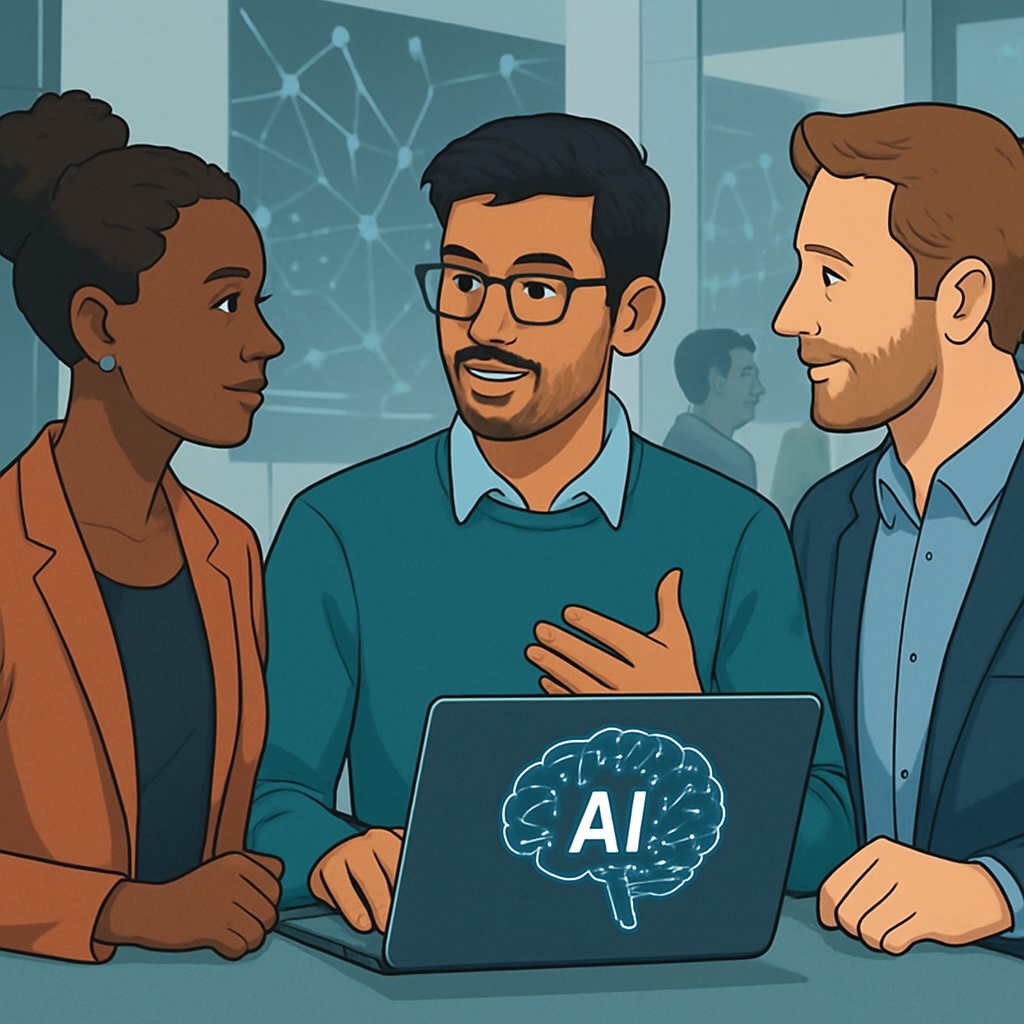
Networks and Industry Associations
The Importance of Networking and Industry Organizations for AI Professionals
For AI Research Scientists, it is essential to stay continuously updated on technological and scientific breakthroughs. Becoming a member of leading industry organizations, such as the Association for the Advancement of Artificial Intelligence (AAAI), provides access to exclusive publications, webinars, and knowledge events. Other international networks, such as ELLIS (European Laboratory for Learning and Intelligent Systems) and IEEE, can also be valuable sources of knowledge and connections.
AI Conferences and Networking Events
Attending AI conferences, symposiums, and hackathons is not only inspiring but also crucial for expanding your professional network. Renowned conferences like NeurIPS, ICML, and CVPR attract researchers from around the world. New papers are presented, collaborations are initiated, and career opportunities are discussed. For those aiming to build a career in AI, such events often serve as a bridge between research, industry, and innovation.
Online Communities and Platforms
In addition to physical events, online communities on platforms like GitHub, Reddit, Stack Overflow, and LinkedIn offer valuable opportunities to learn and network. By participating in open-source projects or discussion groups focused on machine learning and deep learning, you increase your visibility in the field. Regular contributions to these platforms can also lead to collaborations, mentorship, or even job opportunities.
Collaborating Within and Beyond the Sector
Many AI Research Scientists work in multidisciplinary teams or actively seek collaboration with professionals from other sectors such as healthcare, finance, or mobility. Industry organizations and professional associations help stimulate this cross-pollination. Think of partnerships with universities, startups, or government institutions. Such networks contribute to both substantive growth and societal relevance.
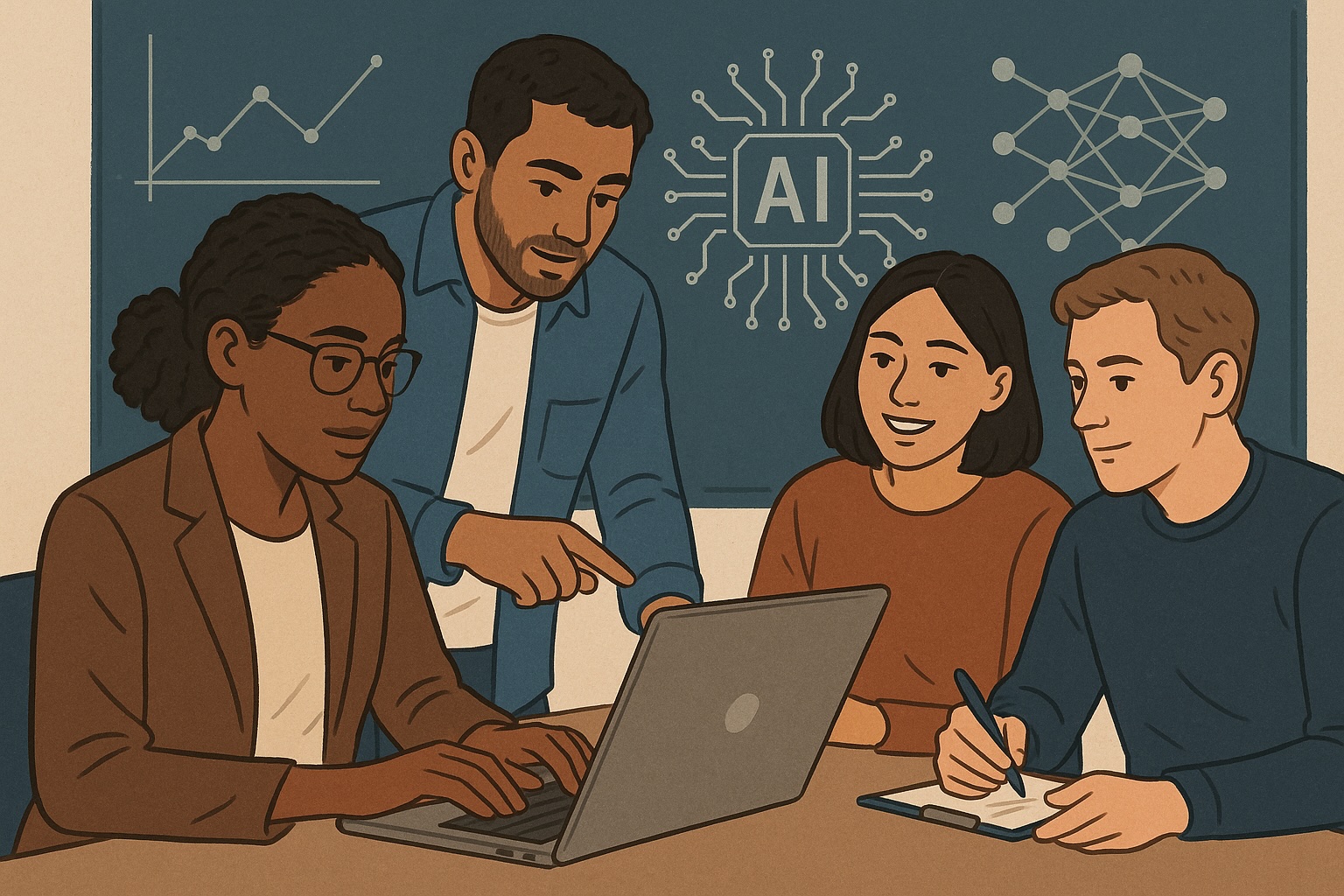
Impact and societal relevance
Societal Impact of AI Research Scientists
The innovations of AI Research Scientists form the backbone of technological progress that is fundamentally transforming sectors such as healthcare, finance, education, energy, and transportation. By developing new algorithms and models, they enable applications that were previously unthinkable.
Solutions for Major Societal Challenges
AI is increasingly being used to tackle urgent societal issues. Think of accelerating medical diagnoses using deep learning, optimizing logistics networks to reduce CO2 emissions, or predicting extreme weather conditions to mitigate the impact of climate change. AI Research Scientists play a central role in this: they translate abstract scientific concepts into practical solutions with direct societal value.
Advancements in Healthcare and Daily Life
Thanks to research in artificial intelligence, breakthroughs are emerging in personalized medicine, early disease detection, and automated image recognition in medical scans. We also see the impact in everyday life—for example, through smarter search engines, personalized recommendation systems, and voice recognition in digital assistants. These innovations increase convenience, improve service accessibility, and enhance user autonomy.
Responsibility and Ethics
With great technological power comes great responsibility. AI Research Scientists are increasingly aware of the ethical implications of their work. They focus not only on what is technically possible, but also on what is socially desirable. Transparency, explainability, bias reduction, and data privacy are high on the research agenda. In this way, they ensure that AI contributes to a fair and inclusive society.
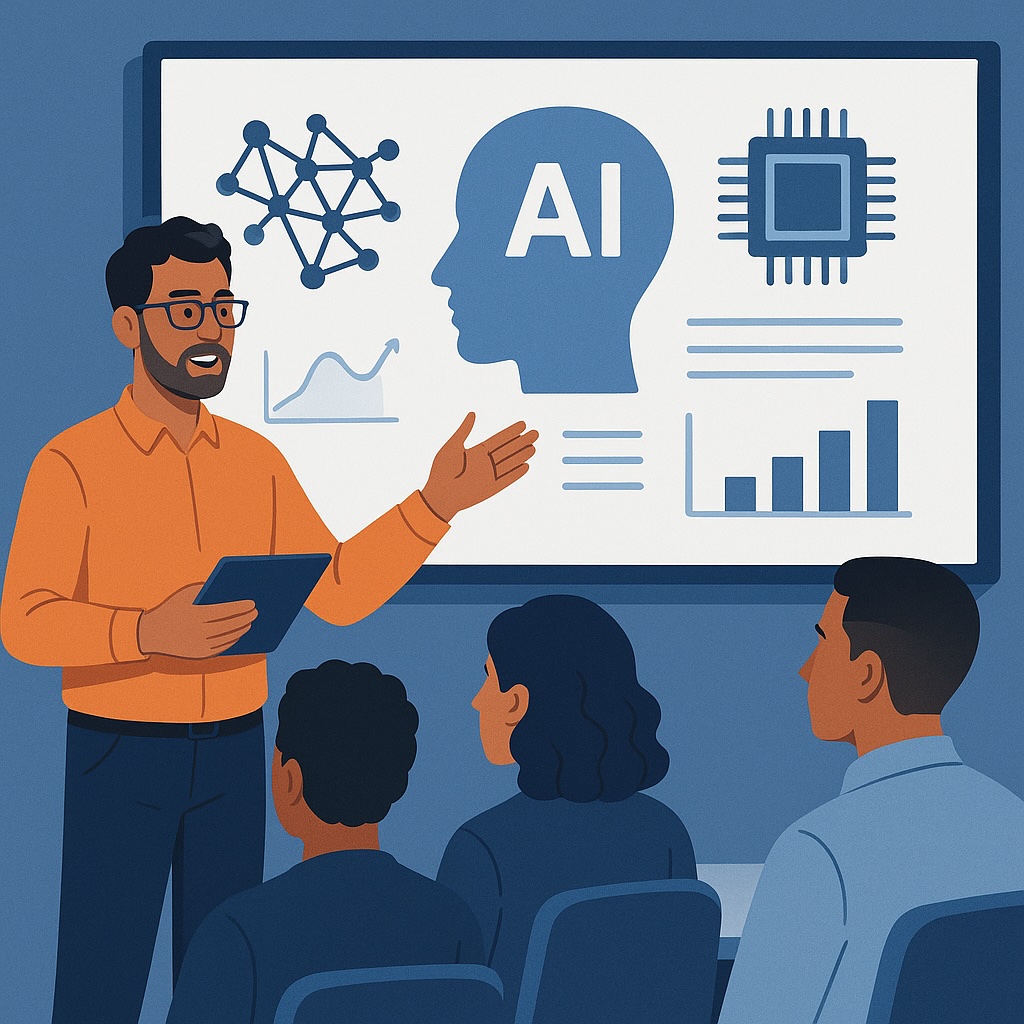
How do you become an AI Research Scientist?
How to Become an AI Research Scientist?
The path to a career as an AI Research Scientist begins with a solid academic foundation. Typically, it starts with a bachelor's degree in a relevant field such as computer science, mathematics, artificial intelligence, physics, or electrical engineering. Earning a master's degree, and often even a PhD, in a specialized AI subject is an important next step.
Gaining Practical Experience
In addition to theoretical knowledge, gaining practical experience is crucial. This can be done through internships, AI projects during your studies, internships at tech companies, or contributions to open-source initiatives. Developing and training machine learning models, working with neural networks, and conducting experiments in a research environment are valuable learning experiences.
Continuous Learning and Experimentation
The world of AI is evolving rapidly. A successful AI Research Scientist is therefore a lifelong learner. By following online courses, attending conferences, and reading recent publications, you stay up to date with the latest developments in deep learning, reinforcement learning, generative AI, and more.
Building a Professional Network
Attending scientific conferences, meetups, and seminars is not only educational but also essential for building a network. Collaborating with other researchers, sharing knowledge, and publishing your work increase your visibility in the field.
Choosing a Specialization
Many AI Research Scientists choose a specialization, such as computer vision, natural language processing, robotics, or generative AI. By developing deep expertise in a specific domain, you enhance your value as a researcher and innovator.
Transitioning to Practice
Some AI researchers remain in academia, while others move to R&D departments of tech companies, AI startups, or research institutes. In practice, you often work on developing new algorithms, improving existing models, or solving complex problems using AI technology.
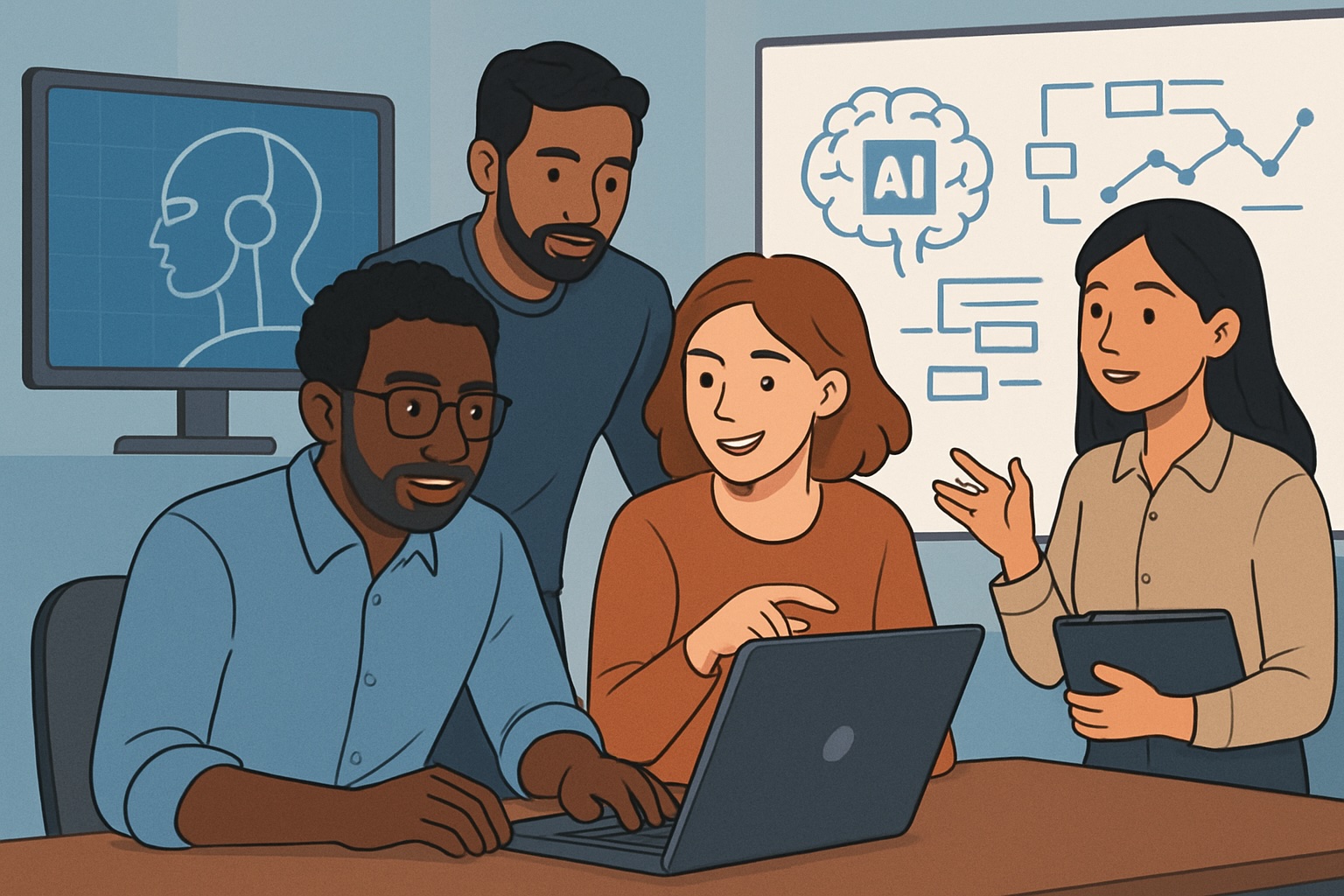
Case Study: The Pioneering Role of an AI Research Scientist
Background
At AlphaData, a forward-thinking technology company in the field of artificial intelligence (AI), the pressure to innovate was growing. Competition was increasing, technological developments were evolving at lightning speed, and customers expected smarter, more transparent, and more reliable AI solutions. It became clear: to stay ahead, AlphaData had to invest not only in technology but also in fundamental research.
The ambition? To develop an AI system that was both state-of-the-art and ethically responsible — a combination rarely found in a market where speed often takes precedence over caution.
The Challenge
The technological challenge was complex. The team aimed to develop a new AI model capable of handling large volumes of unstructured data, capable of learning autonomously, and respectful of human values. This meant minimizing bias, safeguarding privacy, improving model explainability, and considering societal implications.
Moreover, the model needed to be scalable and applicable across different sectors such as healthcare, finance, and logistics. This required a multidisciplinary approach, as classical software engineering and data science alone were not sufficient.
Action by the AI Research Scientist
Alex, AI Research Scientist at AlphaData, took the lead in this innovative project. With an academic background in mathematics and computer science, combined with experience in ethical AI, he was able to effectively bridge theory and practice.
His approach began with an extensive literature review on bias reduction in machine learning. He then collaborated with a team of engineers and ethicists to develop a prototype centered on transparency and explainability. Think of models capable of explaining their decisions — a crucial aspect in building user trust.
Alex integrated methods such as Fairness-Aware Machine Learning, Explainable AI (XAI), and Differential Privacy. He experimented with new neural network architectures and optimization algorithms that performed not only accurately but also ethically. Regular workshops with stakeholders — from policymakers to end-users — ensured that ethics was not just an abstract concept, but practically applied.
Result
After months of iterative research and development, AlphaData launched an AI platform that could be directly applied in client environments — from medical diagnostics to risk analysis in financial institutions. The system was not only powerful and efficient but also demonstrably better at transparency, explainability, and bias reduction than previous models.
The innovative approach gave AlphaData a strategic advantage. Not only did the company stand out in a crowded market, but it also built a reputation as an ethical leader within the AI industry. Clients were quicker to trust the system, and internally, a culture emerged in which collaboration between technology and ethics became second nature.
Alex’s role was crucial in this success story. His ability to translate deep knowledge into practical solutions, and his constant attention to ethics in every step of the process, made him a key figure in AlphaData’s transformation into a pioneer in responsible AI.
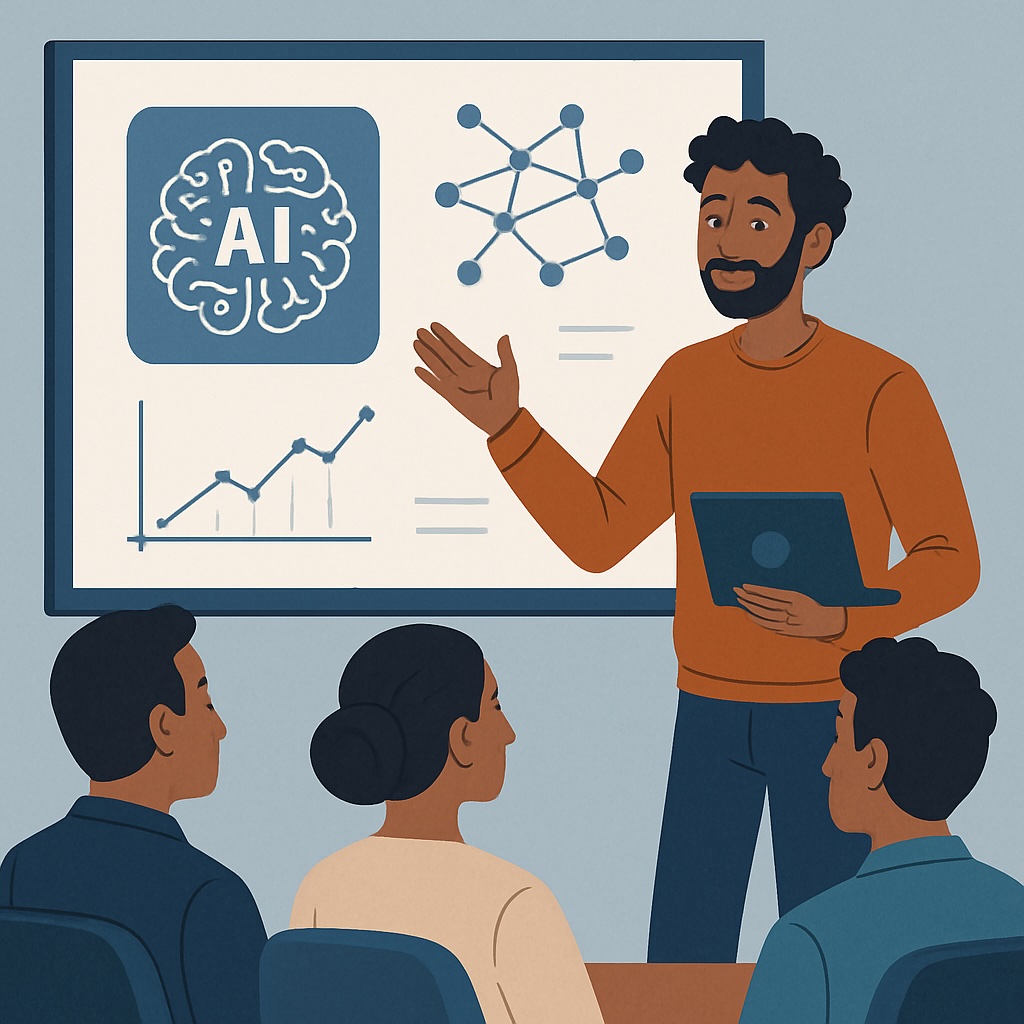
Job openings for AI Research Scientists
View all current job openings on DataJobs.nl
Looking for an AI Research Scientist?
For a small fee, you can easily post your job openings on our platform and reach our large, relevant network of data and analytics specialists. Applicants respond directly to you, without any third-party involvement.
At DataJobs.nl, we connect supply and demand in the data and analytics job market directly—without intermediaries. You won’t find job postings from recruitment agencies on our site. Visitors can view all vacancies for free and without an account, and apply directly.
View the options for posting job openings here. Questions? Contact us!
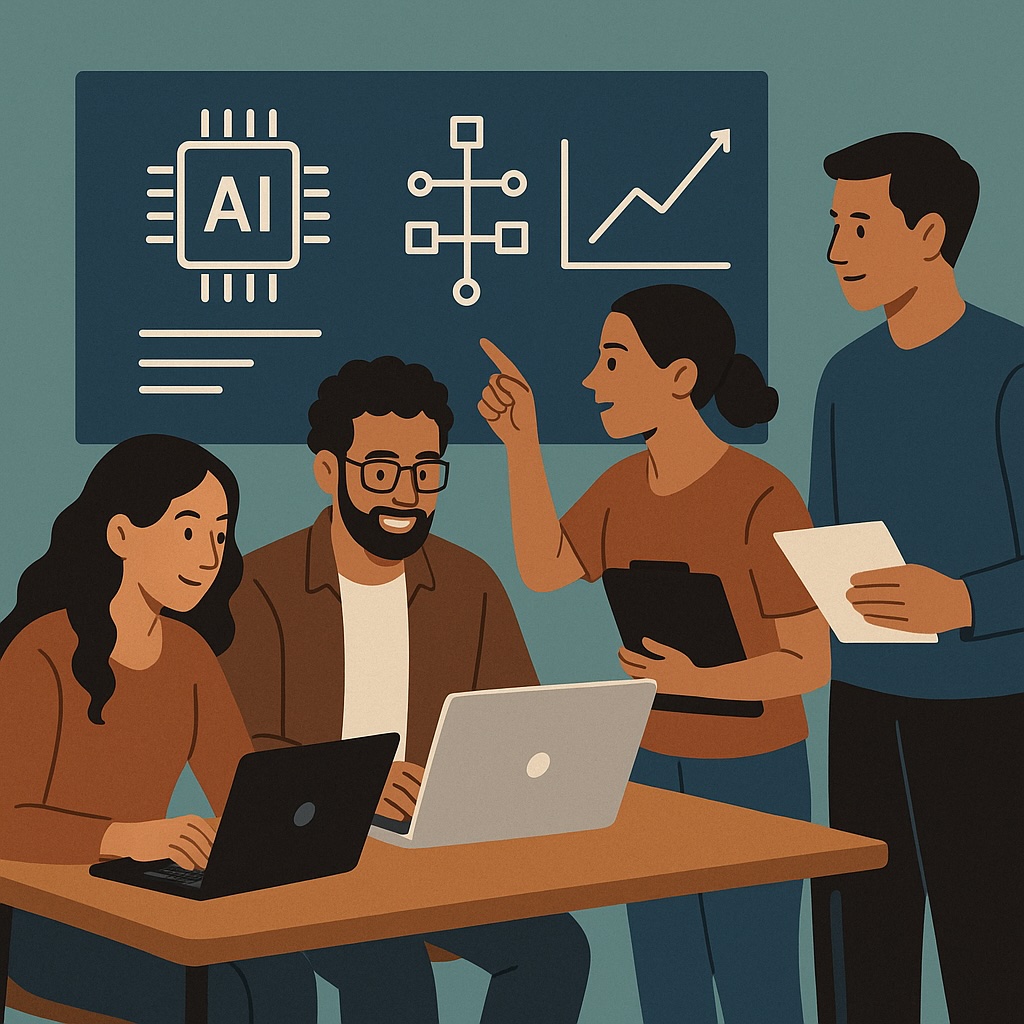
Op zoek naar een uitdaging in data & analytics?
Bekijk hier alle actuele kansen! See vacancies- What does an AI Research Scientist do?
- A day in the life of an AI Research Scientist
- What tools does an AI Research Scientist use?
- What is the salary of an AI Research Scientist?
- Career path and growth opportunities
- Training and Certification
- Networks and Industry Associations
- Impact and societal relevance
- How do you become an AI Research Scientist?
- Case Study: The Pioneering Role of an AI Research Scientist
- Job openings for AI Research Scientists
- Looking for an AI Research Scientist?


